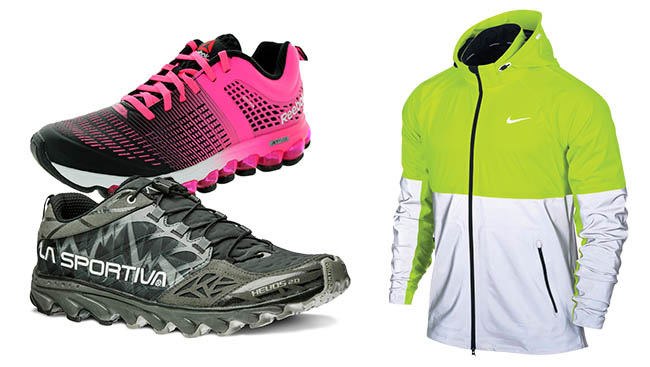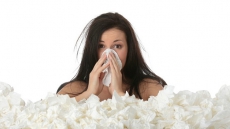It’s always sad to see it go, but the season of sun is on its way out and fall and winter are bringing their wetter, colder, less outdoor-inspiring weather.
For many people, this means the end to their fitness routine, but it doesn’t have to be that way. Just because heading outdoors for exercise doesn’t seem like the most exciting thing in the world doesn’t mean that you can’t keep up your fitness in comfort and safety.

Here are a few tips for when the weather goes bad:
Dress the part.
There is nothing more miserable than getting soaked with sweat in chilly temperatures, which will make you cold right down the bone – and maybe even sick.
Make sure that you wear a base layer that will wick moisture away from your body, such as wool, silk, or synthetic blends. And a heavier outer layer might be essential too, depending on the temperature.
Don’t forget your extremities. Exercise pulls the blood toward your core, so be sure to insulate your feet, hands, and head. Thick socks, mittens or gloves, a knit cap, and perhaps even heat packs will all save you from a lot of discomfort, and maybe even worse.
Illuminate.
With the changing seasons comes less and less daylight. Be sure to keep safe when running in dim light or darkness by wearing reflective clothing and lighting.
Consider your shoes.
Wet and icy surfaces can make for an easy slip. Remember to wear shoes that offer plenty of traction so that you can avoid ending up on the ground.

Stay hydrated.
It’s just as important to stay hydrated in cold weather as it is in hot, but many people forget about it because it’s harder to notice the effects of dehydration when it’s chilly. Remember that the winter wind can dry you right out.
Wear your sunscreen.
That’s right – sunscreen can be important even after summer is behind us. This is especially true if you’ll be outdoors in the snow. So put on some moderate SPF sunscreen to ward off burns and skin disease.
Go out in bursts.
When the weather is good you might be used to heading outside for extended workout sessions, but when it gets cold and wet, consider taking short breaks during which you head back indoors to warm up and dry off.

Know your limits.
You might think the temperature looks fine on the thermometer, but don’t forget that the wind-chill can make the actual temperature significantly lower. And unless you have the proper gear, rain and snow can be downright dangerous and uncomfortable.
Know when the conditions are too bad for you to head outdoors safely.
Take it inside.
Maybe the solution is to cut off your outdoor workouts altogether and bring things inside.
For some people that means joining a gym, but you can get a great workout at home with the right gear and equipment. Get yourself something that can provide a solid cardio routine – a jump rope makes for a great affordable option, or you can go big with a treadmill or elliptical. Bolster that with dumbbells, resistance bands, a pullup bar, and whatever else you need to get a good burn.
Stay nutritious.
Finally, bad weather makes it easy to stay inside, do nothing, and eat anything and everything, but remember to keep up healthy eating habits. Offset any reduced physical activity with a nutritious diet, and you won’t come into spring with a panic to get your beach bod back.






